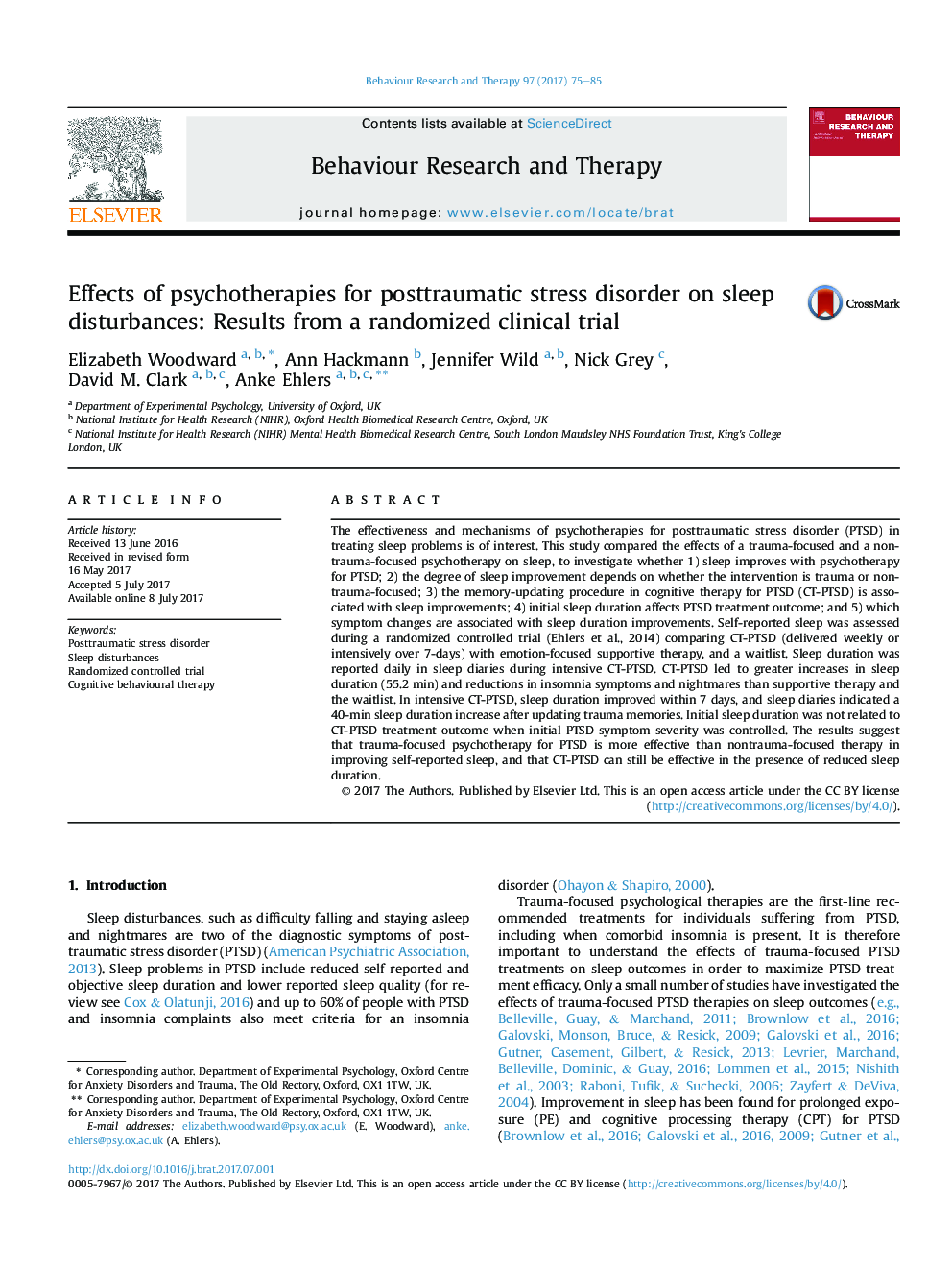| Article ID | Journal | Published Year | Pages | File Type |
|---|---|---|---|---|
| 5038159 | Behaviour Research and Therapy | 2017 | 11 Pages |
â¢Randomised controlled design comparing psychotherapies for posttraumatic stress disorder (PTSD) on sleep.â¢Self-reported sleep improves with cognitive therapy for PTSD (CT-PTSD).â¢Sleep improves more with a trauma focused vs. non-trauma focused psychotherapy for PTSD.â¢Sleep diaries showed a sleep duration improvement after updating trauma memories in therapy.â¢PTSD can be successfully treated in the presence of reduced sleep duration.
The effectiveness and mechanisms of psychotherapies for posttraumatic stress disorder (PTSD) in treating sleep problems is of interest. This study compared the effects of a trauma-focused and a non-trauma-focused psychotherapy on sleep, to investigate whether 1) sleep improves with psychotherapy for PTSD; 2) the degree of sleep improvement depends on whether the intervention is trauma or nontrauma-focused; 3) the memory-updating procedure in cognitive therapy for PTSD (CT-PTSD) is associated with sleep improvements; 4) initial sleep duration affects PTSD treatment outcome; and 5) which symptom changes are associated with sleep duration improvements. Self-reported sleep was assessed during a randomized controlled trial (Ehlers et al., 2014) comparing CT-PTSD (delivered weekly or intensively over 7-days) with emotion-focused supportive therapy, and a waitlist. Sleep duration was reported daily in sleep diaries during intensive CT-PTSD. CT-PTSD led to greater increases in sleep duration (55.2 min) and reductions in insomnia symptoms and nightmares than supportive therapy and the waitlist. In intensive CT-PTSD, sleep duration improved within 7 days, and sleep diaries indicated a 40-min sleep duration increase after updating trauma memories. Initial sleep duration was not related to CT-PTSD treatment outcome when initial PTSD symptom severity was controlled. The results suggest that trauma-focused psychotherapy for PTSD is more effective than nontrauma-focused therapy in improving self-reported sleep, and that CT-PTSD can still be effective in the presence of reduced sleep duration.
